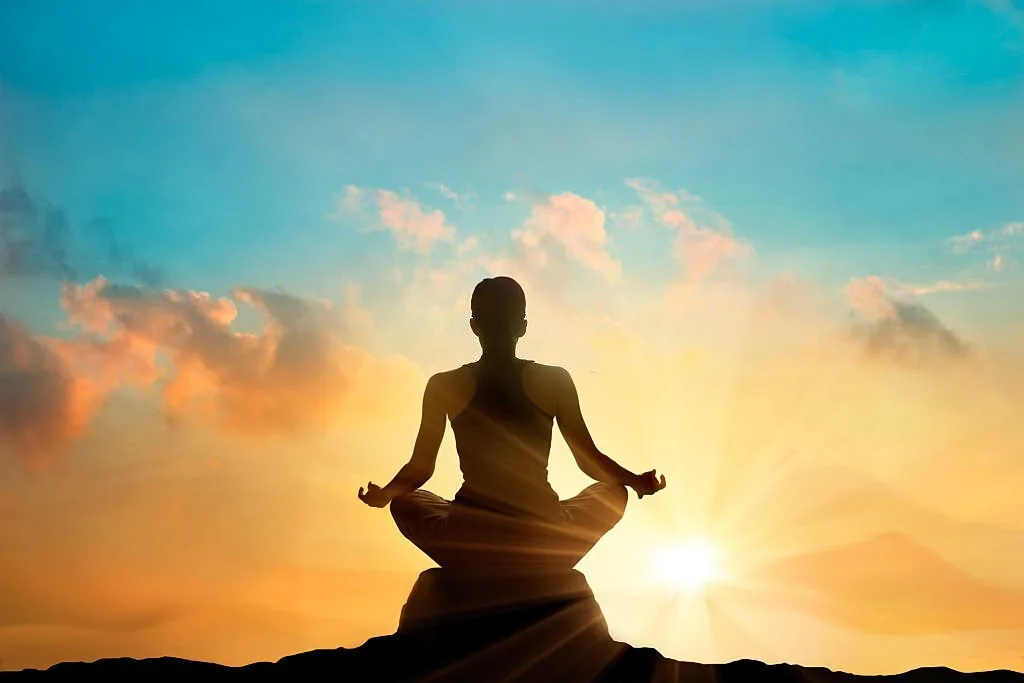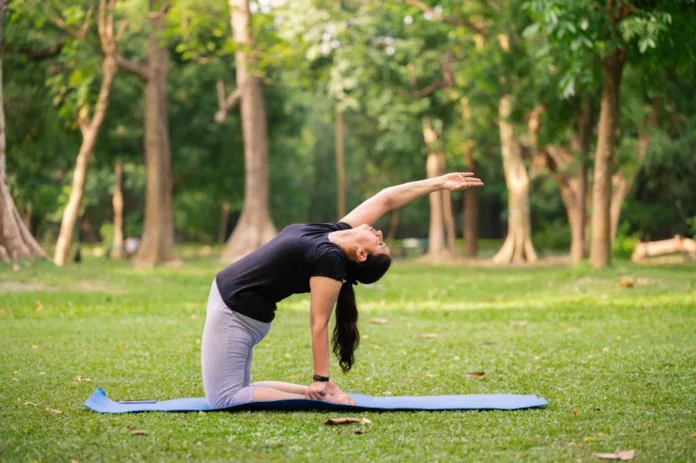Finding moments of calm and placing a high priority on mental health are essential in the hurried world of today. Yoga, a centuries-old Indian practise, has numerous advantages for the body and the mind. Yoga can be a potent method to improve mental health because it combines physical postures, controlled breathing, and mindfulness. Here are six yoga postures that have been scientifically proven to have soothing effects, lower stress levels, and improve mental health.

1. Child’s Pose (Balasana): During yoga sessions, this beginner-friendly pose is frequently used as a resting position. Child’s Pose promotes profound relaxation by gently folding the body forward and placing the forehead on the mat. It encourages a feeling of comfort and security while aiding in the relief of back, neck, and shoulder pain. In this soothing pose, take slow, deep breaths to promote a sense of mental calm.
2. Mountain Pose (Tadasana): This posture, which involves standing erect with your feet hip-width apart, is a great technique to ground and center yourself. Imagine roots extending from the soles of your feet and tying you to the earth as you concentrate on your breathing. The posture, balance, and general body awareness are all enhanced by this stance. Mountain Pose fosters mental clarity and an awareness of one’s inner power by making one feel rooted and secure.
3. Downward-Facing Dog (Adho Mukha Svanasana): Downward-Facing Dog is one of the most well-known yoga positions and is both an energizing and calming position. It stretches every region of the body, but especially the shoulders, back, and hamstrings. This position increases blood flow to the brain, which lowers stress and anxiety levels. Spend a few breaths in this position, allowing your mind to clear and your head to unwind.
4. Legs-Up-The-Wall Pose (Viparita Karani): As the name implies, this pose has the practitioner lying on their back with their legs up a wall. It is an excellent pose for easing lower back and leg tension and promoting relaxation. Legs-Up-The-Wall Pose promotes circulation and lessens mental weariness by directing blood towards the heart. This moderate inversion can promote mental calmness and aid with melancholy and anxiety problems.
5. Corpse stance (Savasana): Savasana is frequently regarded as the most significant stance in a yoga practice since it enables total relaxation and integrates the advantages of the earlier poses. Lay down on your back with your legs gently spaced apart and your arms at your sides. Allow any tension to melt away as you close your eyes and concentrate on your breath. Savasana encourages a deep level of relaxation and mental renewal while assisting in the reduction of stress, anxiety, and sleeplessness.
6. Bridge Pose (Setu Bandhasana): The mild backbend of Bridge Pose stretches the spine and opens the chest. The nervous system is calmed and blood supply to the brain is increased. Depression, exhaustion, and anxiety symptoms can all be reduced with the use of this stance. Slow, steady breathing is key when performing Bridge Pose so that the body can unwind and the mind can calm down.
Your mental health will benefit greatly from incorporating these yoga poses into your everyday routine. These positions are doable and beneficial for everyone, regardless of your level of yoga experience. Always pay attention to your body, take deep breaths, and be mindful while performing each pose. To reap the full advantages of yoga for your mental health, strive to perform these poses consistently.
In conclusion, yoga is a wonderful exercise that has many advantages for the body and mind. You may improve your mental health and discover peace and tranquility in the midst of a hectic world by including these six yoga poses into your daily practice. Spend some time putting your mental health first and treat yourself to some yoga. Always practice within your comfort zone and, if necessary, get advice from a certified yoga instructor. Accept these positions and allow them to direct you towards a happier and more peaceful mind.




